Swiss licence fee vote: the demands and potential consequences
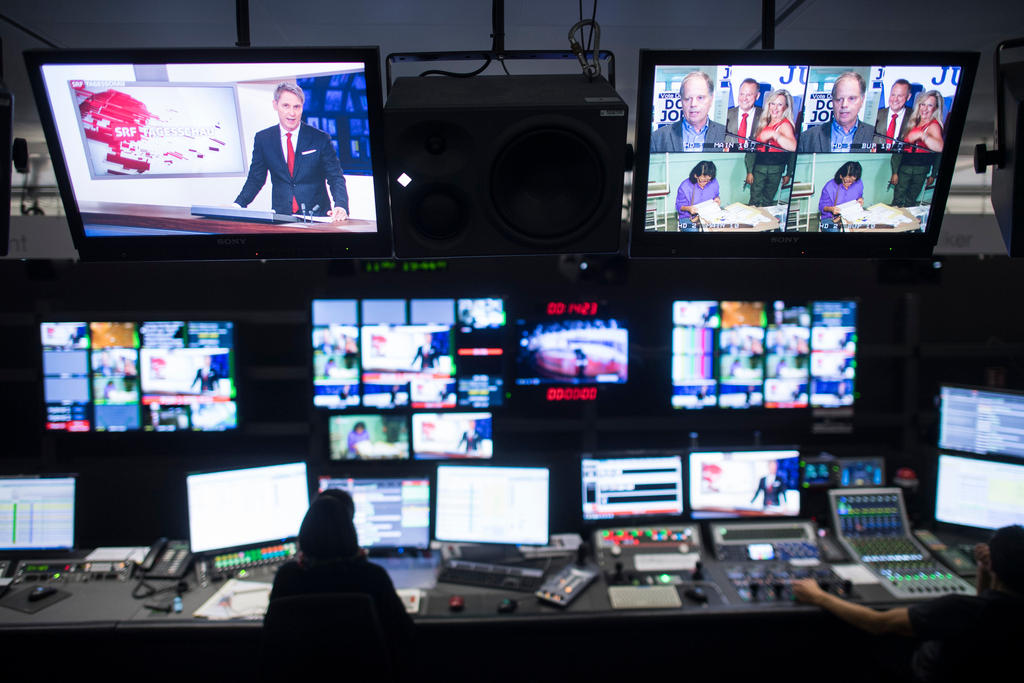
On March 4, the Swiss will vote on getting rid of the compulsory radio and television licence fee. If they say yes, Switzerland will become the first country in Europe to abolish the bulk of its public-service broadcasting. What are the arguments and what is at stake?
Supporters of the “No Billag” initiative say the media market would become more open and competitive, benefiting consumers. The government and parliament on the other hand argue it would harm, among other things, the quality and plurality of the media, which they say is essential in a country with direct democracy.
The No Billag name comes from the company charged with billing consumers for their use of services from the Swiss Broadcasting Corporation (SBC), swissinfo.ch’s parent company.

More
Fact check: the case for and against licence fees
What is the initiative demanding?
A change to Article 93External link of the Swiss constitution, which covers radio and television. If the initiative is accepted, from January 1, 2019, the government will no longer be able to collect a licence fee. The initiative also precludes government subsidies of radio and television stations, saying broadcasters may be financed solely on a commercial basis within a market economy. What’s more, the government may not run its own radio and television stations during peace time.
It also wants to scrap Paragraph 2 of Article 93, which governs the mandate and principles of public-service radio and television: “Radio and television shall contribute to education and cultural development, to the free shaping of opinion and to entertainment. They shall take account of the particularities of the country and the needs of the cantons. They shall present events accurately and allow a diversity of opinions to be expressed appropriately.”
Which broadcasters benefit from the licence fee?
Those radio and television stations that fulfil the public-service mandate as stated in the constitution.
At the national level, the non-profit SBC has had a mandate since the 1930s. It provides seven television stations and 17 radio stations which cover Switzerland’s four linguistic and cultural regions (German, French, Italian and Romansh).
Since the 1990s, private broadcasters which fulfil the mandate have also received money. Currently, this applies to 13 regional television stations and 21 local radio stations, which, as part of the mandate, must broadcast regional news programmes at peak times. The SBC and private stations must also transmit important police bulletins and official announcements in a crisis.
How is the licence fee money allocated?
In 2016, income from the licence fee totalled around CHF1.37 billion ($1.41 billion). The lion’s share (CHF1.24 billion) went towards financing the SBC’s radio and television output. Private broadcasters received CHF67 million.
In October 2017, the government decided to raise the private stations’ share to CHF81 million while reducing that of the SBC to CHF1.2 billion.
Within the SBC, the money is spread among the linguistic regions in order to guarantee equal quality across the country. Solidarity is key. While German-speaking Switzerland provides 72.5% of the licence fee money, it receives only 43% of the total – the rest goes to the other language regions.
The initiative’s supporters say they don’t want to abolish the SBC – just the obligatory licence fee. If people no longer had to pay this, they argue, CHF1.3 billion in purchasing power would be freed up, benefiting the Swiss economy.
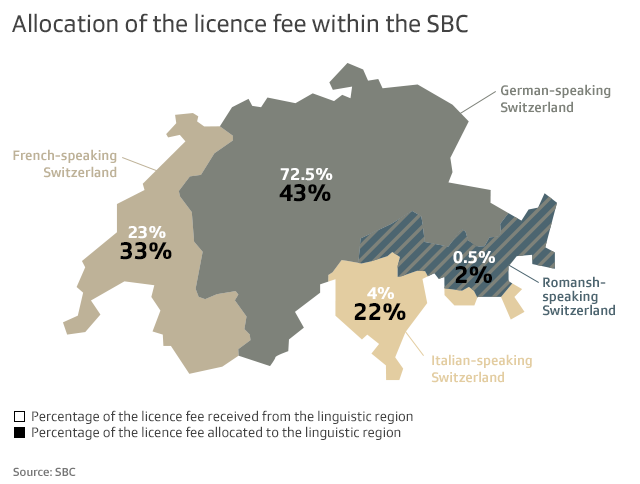
What proportion of the licence fee finances public-service radio and television stations?
The advertising market in Switzerland is relatively small compared with neighbouring countries, especially since it is spread over four linguistic regions. Licence fee money is therefore the main source of income for public-service broadcasters, making up 75% of income at the SBC, 53% at regional television stations, 67% at non-profit local radio stations and 35% at local radio stations in mountain or peripheral regions.
How much do private households and businesses pay?
The radio and television licence fee for private households is currently CHF451.20 a year. This will be reduced to CHF365 from 2019 when the new Radio and Television Act (RTVA), which was narrowly approved in a referendum in 2015, enters into force.
For businesses, a progressive contribution system will be introduced that depends on turnover. Commercial entities with turnover of less than CHF500,000 will be exempt. The amount will then range from CHF365 for companies with turnover greater than CHF500,000 up to CHF35,590 for companies with turnover of more than CHF1 billion.
What are the radio and television viewer ratings in Switzerland?
All Swiss stations – whether public-service or private – face stiff competition from neighbouring Germany, France and Italy.
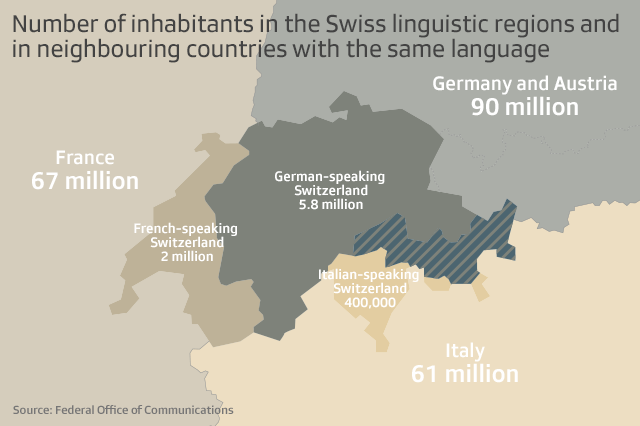
Competition is high above all for the television market, since this is particularly lucrative from an advertising perspective. Today, foreign broadcasters take 42% of the advertising cake. When it comes to radio, SBC stations and Swiss private stations remain clearly dominant over foreign stations.

Why does the government reject the initiative?
The government says the initiative will damage media plurality, which ensures a diversity of viewpoints and enables people to reach an informed opinion.
In addition, many programmes in relatively small Switzerland, with its population of 8.4 million and four national languages, could not be financed by advertising and sponsors alone. The abolition of the licence fee would hit above all the linguistic minorities and peripheral regions, which don’t have a big enough advertising market to finance broadcasters.
The public-service broadcasters have a clearly defined mandate to promote a free and open shaping of opinion, which comprises cultural development in all linguistic regions independent of economic and political interests. The government says acceptance of the initiative would put all this at risk and lead to what’s offered being a lot thinner. A consequence would be an increase in influence of private financial backers and foreign groups with purely commercial interests and therefore broadcasters would just focus on what is popular with the majority of viewers or listeners.
While the initiative’s supporters argue that consumers would benefit from greater competition – they say quality would increase, the range on offer would be greater and prices would go down – the government says media plurality, which is essential for Switzerland and its direct democracy, would be threatened. As would special services such as subtitles and sign language for people with hearing or sight impairments.
Many private households, the government says, would have to pay more for an adequate media offering than they do today. Pay-per-view stations, particularly for sport, are expensive and not even available in all parts of the country, it points out.
The initiative would also have a very negative effect on the Swiss economy and the job market, the government says. Thousands of jobs would be lost at the SBC and media companies that supply it.
The SBC also supports many cultural and sporting events. Without income from the licence fee, this would no longer be possible. For example, the SBC is an important partner for the Swiss film and music industries.
What does parliament say?
The vast majority of Swiss parliamentarians support the government in rejecting the initiative, which is backed almost exclusively by the rightwing Swiss People’s Party.
In the House of Representatives, the No Billag initiative was rejected by 129 votes to 33, with 32 abstentions. The verdict was even clearer in the Senate, where it was rejected by 41 votes to two, with one abstention.
(Adapted from Italian by Thomas Stephens)

In compliance with the JTI standards
More: SWI swissinfo.ch certified by the Journalism Trust Initiative












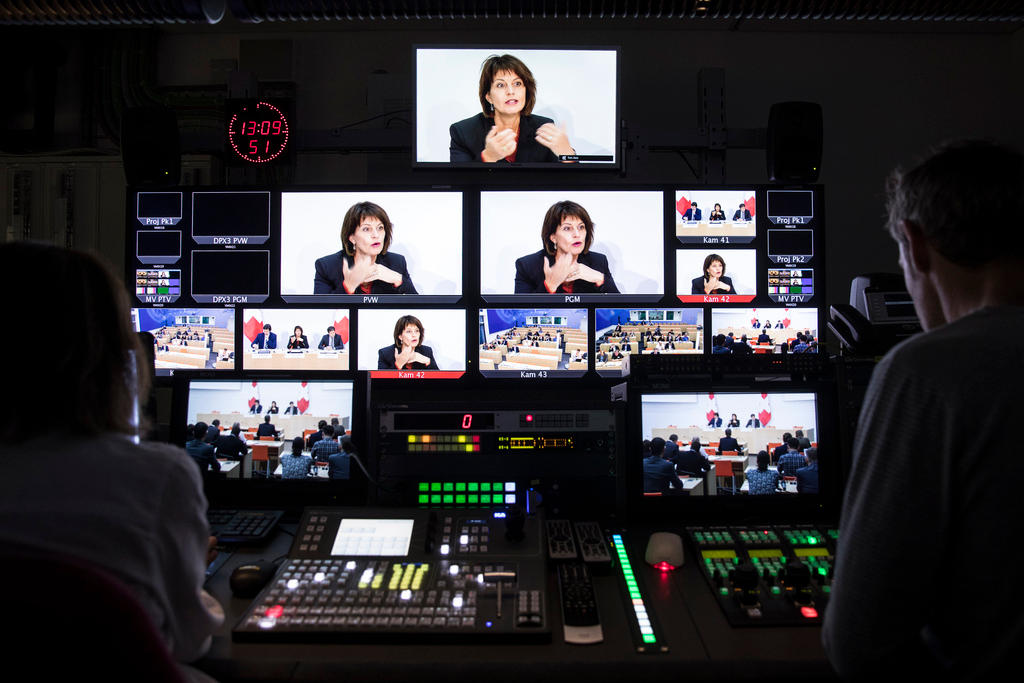
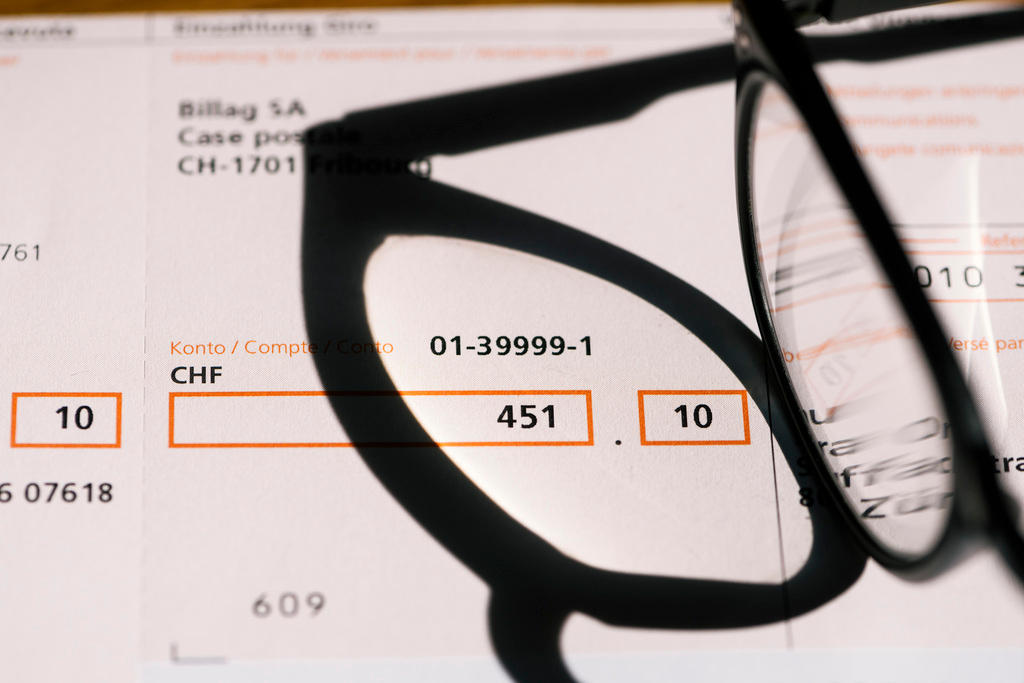
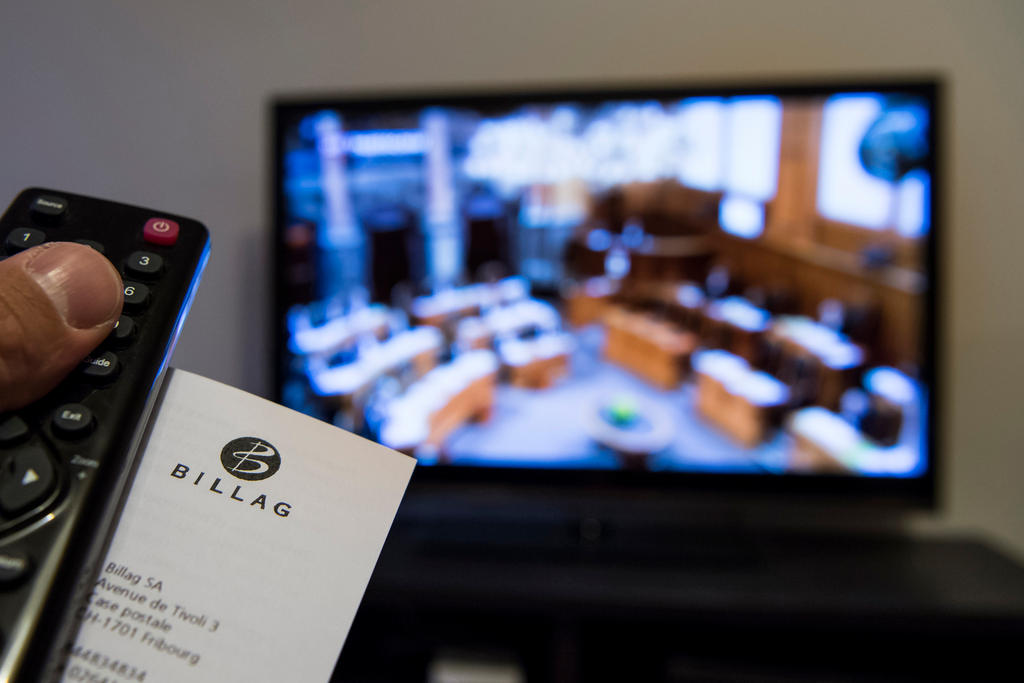
You can find an overview of ongoing debates with our journalists here . Please join us!
If you want to start a conversation about a topic raised in this article or want to report factual errors, email us at english@swissinfo.ch.